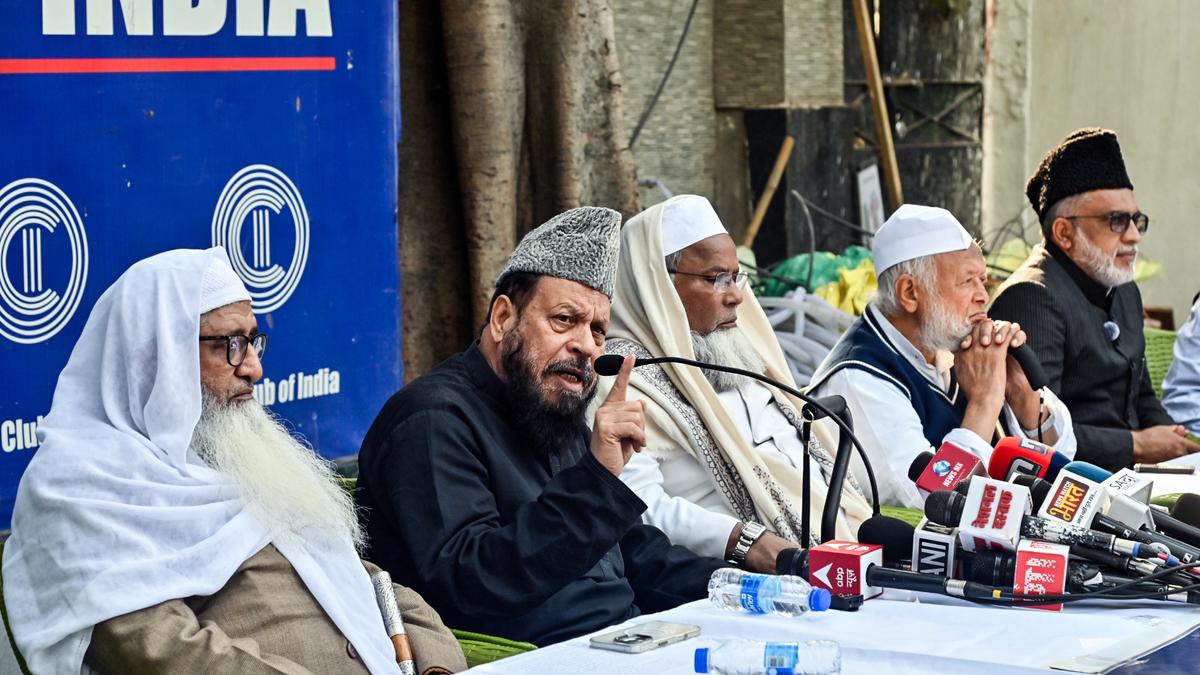 |
|
The All India Muslim Personal Law Board (AIMPLB) has vowed to pursue legal action against the recently tabled Waqf (Amendment) Bill, expressing deep concern over its potential impact on Muslim religious properties. The Board's spokesman, S.Q.R. Ilyas, characterized the bill as a direct threat, asserting that its passage would facilitate the seizure of mosques, madrasas, dargahs, and graveyards. This strong opposition underscores the significant apprehension within the Muslim community regarding the bill's implications for their religious and cultural heritage.
The AIMPLB's criticism extends beyond the bill's potential impact on property rights. The Board vehemently condemns the process through which the bill progressed, alleging a disregard for democratic principles and the constitutional rights of Muslims. The Joint Parliamentary Committee (JPC) report, which incorporated 14 amendments, is specifically criticized for ignoring the input of millions of Muslims who expressed their objections during the hearings. The sheer volume of objections, estimated at nearly 36 million emails, highlights the widespread dissent within the Muslim community.
Arshad Madani, president of Jamiat Ulama-i-Hind, further amplified these concerns. He pointed out that the amendments shift the authority to determine the status of Waqf properties from the Waqf Board to a senior government officer. This transfer of power, he argued, significantly increases the risk of arbitrary seizure of Muslim-owned properties. The process, Madani explained, introduces a delay mechanism where properties will not be considered Waqf until a report is received from this officer – potentially leading to indefinite delays and the eventual loss of Waqf status. This mechanism is seen as a significant threat to the long-term security of Muslim religious institutions.
The accusations of undemocratic procedures and biased treatment are central to the AIMPLB's opposition. The Board highlights the government's alleged failure to adequately consider the concerns of affected stakeholders. This perceived disregard for the voices of millions of Muslims fuels the sense of injustice and fuels the Board's resolve to pursue legal avenues to challenge the bill. The Board’s condemnation is not confined to the Muslim community, but extends to a broader concern about democratic principles and potential repercussions for all religious communities and charitable institutions.
The AIMPLB’s call for the withdrawal of the bill is accompanied by a broader appeal to Indian civil society, urging support from all those who value democracy, constitutional rights, and religious freedom. The Board frames the bill as not only a threat to Muslim rights but also a dangerous precedent that could jeopardize similar endowments for other religious groups. The stakes are high, and the AIMPLB's strategy reflects a determined effort to challenge what it views as an unjust and potentially discriminatory piece of legislation. The outcome of this legal battle will likely have significant implications for the future of religious freedoms and property rights in India.
Beyond the immediate legal challenge, the controversy surrounding the Waqf (Amendment) Bill highlights the complex relationship between the Indian government and its Muslim minority population. The accusations of bias and disregard for democratic processes raise serious questions about governance and inclusion. The ongoing debate serves as a reminder of the importance of upholding democratic values and ensuring that the voices of all citizens are heard and respected in the legislative process. This ongoing tension underscores the need for open dialogue and compromise to address the concerns of all religious communities within the framework of a pluralistic and democratic society.
